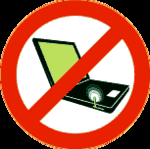 What is a vacation? It's supposed to be a temporary suspension from work, school, or other regular activities to rest. This involves recovering from fatigue, sleeping peacefully, taking a break from work to recharge, engaging in individual or family activities we enjoy, etc. But do we actually recover from work-related fatigue or stress during vacation?
What is a vacation? It's supposed to be a temporary suspension from work, school, or other regular activities to rest. This involves recovering from fatigue, sleeping peacefully, taking a break from work to recharge, engaging in individual or family activities we enjoy, etc. But do we actually recover from work-related fatigue or stress during vacation?
A 2006 Grant Thornton International Survey of Business Owners showed that 571% of all business owners surveyed reported increased stress, compared to 39% in the 2005 survey. This research also found a correlation between stress and the number of vacation days taken by executives around the world (excluding holidays). Argentina ranked 9th out of 30 countries surveyed, with an average of 18 vacation days, one of the countries with the highest average.
On the other hand, in an article published in the Employment supplement of La Nación on September 19, 2006, Ellen Galinsky, president of the Families and Work Institute (FWI), a non-profit research center, states that often it is not difficult bosses or ruthless corporate policies that prevent people from enjoying their vacations, or worse, from taking them. “Most people don’t interrupt their work because they don’t want to.”, says Galinsky. “Ambition, fear of being fired, believing themselves to be indispensable, the need for adrenaline, and guilt about taking time off help explain why workers don't use their full annual leave. The FWI study revealed that overworked employees are more likely to make mistakes, become angry or irritated with their colleagues, have high levels of stress, and experience symptoms of clinical depression. Yet, some continue working during their vacation so as not to be overwhelmed upon their return. This is even more evident the higher up the organizational hierarchy they are.
The possibility of losing their job, a particular position, or having too much work to do is distressing to employees and executives, who decide to postpone their break or enjoy their time away from the office, but without completely disconnecting. Today, technology allows many to be absent and stay up-to-date with everything happening as if they were there, in addition to the possibility of passing the time checking their email from the beach in case someone from the office sends them a message.
The emergence and speed of technological change and the dizzying pace of the labor market, among other things, have created this current work model, which means the sender of an email expects an immediate response, at any time, and whether the recipient is on vacation or not; further flexing the lines between work and home. Often, this is convenient and very beneficial for managing our time, although other times, it may not be entirely positive.
There's no doubt that the multitude of technological elements has freed us from geographical restrictions and made us more productive in ways we never imagined. But given the speed of change and the growing competitiveness and vertigo of the market, it's extremely important to find a balance between our work and personal lives, to be able to rest, to truly disconnect, and to return to work with a clear mind and more energy than before. We must realize that we've worked so hard precisely to take that long-awaited vacation!
